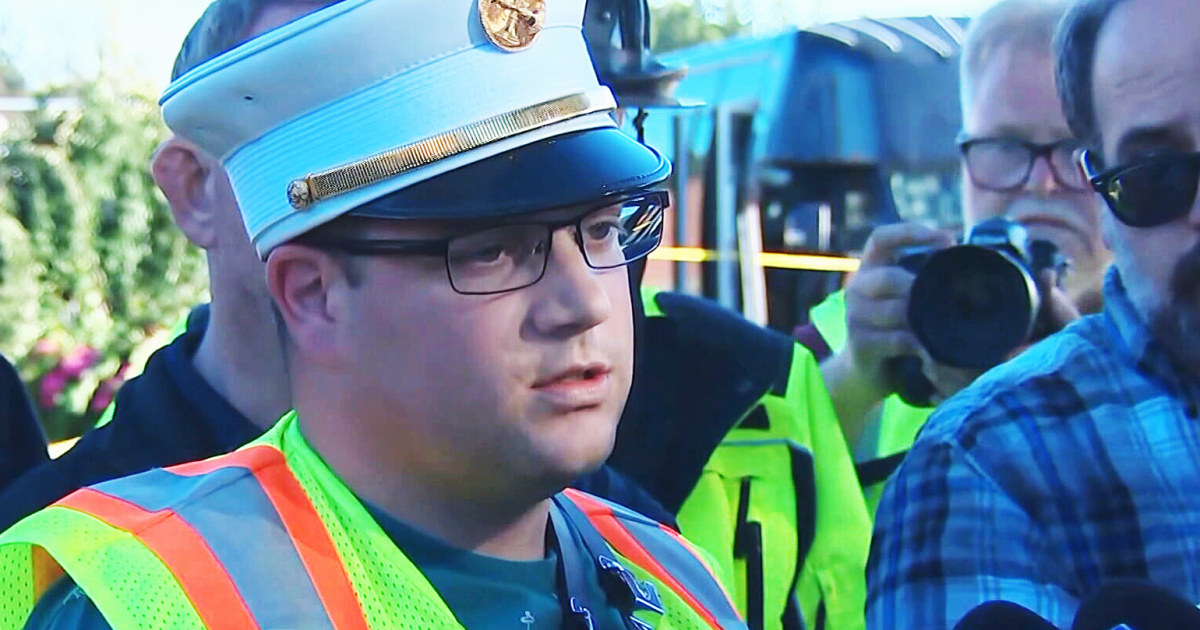Science
Judge Allows Missouri’s Ban on Youth Gender Medicine to Take Effect

The News
A state judge in Missouri on Friday denied a request to temporarily block a state law passed this year that restricts gender-related medical treatments for minors. The ruling was issued by Missouri Circuit Court Judge Steven Ohmer, three days before the ban is set to go into effect. A legal challenge to the ban brought by civil rights groups is ongoing.
Why It Matters: Adolescents and adults are likely to have difficulty accessing gender-related health care.
Under Missouri’s law, clinicians will not be allowed to treat any minor who is not already receiving gender transition care, which includes drugs that suppress puberty; hormone treatments with estrogen or testosterone; and, in rare cases, surgeries. Minors currently receiving care can continue to do so.
The law will also affect transgender adults, as it bans Medicaid coverage of gender transition care for people of all ages in the state. The law has a “sunset” provision and will be in effect for four years.
The legal challenge to Missouri’s ban has been particularly high-profile. A whistle-blower from a pediatric gender clinic in the state, Jamie Reed, said earlier this year that doctors at the clinic had hastily prescribed hormones with lasting effects to adolescents with psychiatric problems. Ms. Reed filed an affidavit about her experience in February and testified on Tuesday in favor of the ban.
Chloe Cole, a 19-year-old who has frequently testified to state legislatures about regretting gender treatments she received as a younger teenager in California, also testified on behalf of the state of Missouri against the injunction.
The plaintiffs in the legal challenge include three transgender minors who are seeking medical care to transition and will no longer be able to do so once the law is in effect. The plaintiffs also include doctors in the state and two national L.G.B.T.Q. advocacy organizations. Doctors who violate the new law could lose their medical licenses or be sued.
According to the Williams Institute, a research center at the U.C.L.A. School of Law, an estimated 2,900 minors in Missouri identify as transgender.
Background: Legal challenges have seen mixed results recently.
At least 20 states have banned or severely restricted transition care for transgender minors in a flurry of legislation, led by Republicans. Most of the bans were passed during this year’s legislative session.
Legal challenges have been brought by civil rights groups in at least 13 states. In June, a judge struck down a ban in Arkansas — the first such law to be passed in the United States — arguing that the law unfairly singled out transition care and transgender children. The ruling was a significant victory for transgender minors and their families. On Friday, a state district court judge in Texas temporarily blocked a law that would ban gender-related treatments for minors.
But a series of legal setbacks has clouded the picture. In August, a federal appellate panel ruled that a similar ban in Alabama could be enforced while the case proceeds. Other disagreements in the courts have signaled that these cases may ultimately be decided by the United States Supreme Court.
The American Academy of Pediatrics last month reaffirmed its position that these types of medical treatments are beneficial for many youth, and has vehemently opposed any government interference in medical decisions that it says are best made by parents and doctors. But the group also took the unusual step of commissioning a review of medical research on the treatments.
What’s Next: The legal challenge continues as the law goes into effect.
The law will restrict any new patients from receiving gender affirming treatments while the case is heard in state court over the next year. And it will continue to prevent Medicaid coverage for the estimated 12,400 transgender people in the state.
Judge Ohmer, who typically presides over juvenile cases, wrote that the science in support of gender-related medicine for youth was “conflicting and unclear,” adding that “the evidence raises more questions than answers.”
In response to the ruling, the American Civil Liberties Union of Missouri said it would continue to fight to overturn the ban: “The case is not over and will go to a full trial on the merits.”

Science
LAX passenger arrested after running onto tarmac, police say

A Los Angeles International Airport passenger was arrested early Saturday morning after he became irate and ran out of Terminal 4 onto the tarmac, according to airport police.
The passenger appeared to be experiencing a mental health crisis, said Capt. Karla Rodriguez. “Police responded and during their attempt in taking the suspect into custody, a use of force occurred,” she said.
The man, who was not identified, was arrested on suspicion of battery against a police officer and trespassing on airport property, she said. He was taken to a nearby hospital for a mental health evaluation.
A video obtained by CBS shows a shirtless man in black shorts running on the tarmac past an American Airlines jetliner with a police officer in pursuit. The officer soon tackles the man and pushes him down on the pavement.
Science
Video: How SpaceX Is Harming Delicate Ecosystems

On at least 19 occasions since 2019, SpaceX’s operations have caused fires, leaks and explosions near its launch site in Boca Chica, Texas. These incidents reflect a broader debate over how to balance technological and economic progress against protections of delicate ecosystems and local communities. The New York Times investigative reporter Eric Lipton explains.
Science
Live poultry markets may be source of bird flu virus in San Francisco wastewater

Federal officials suspect that live bird markets in San Francisco may be the source of bird flu virus in area wastewater samples.
Days after health monitors reported the discovery of suspected avian flu viral particles in wastewater treatment plants, federal officials announced that they were looking at poultry markets near the treatment facilities.
Last month, San Francisco Public Health Department officials reported that state investigators had detected H5N1 — the avian flu subtype making its way through U.S. cattle, domestic poultry and wild birds — in two chickens at a live market in May. They also noted they had discovered the virus in city wastewater samples collected during that period.
Two new “hits” of the virus were recorded from wastewater samples collected June 18 and June 26 by WastewaterSCAN, an infectious-disease monitoring network run by researchers at Stanford, Emory University and Verily, Alphabet Inc.’s life sciences organization.
Nirav Shah, principal deputy director of the U.S. Centers for Disease Control and Prevention, said that although the source of the virus in those samples has not been determined, live poultry markets were a potential culprit.
Hits of the virus were also discovered in wastewater samples from the Bay Area cities of Palo Alto and Richmond. It is unclear if those cities host live bird markets, stores where customers can take a live bird home or have it processed on-site for food.
Steve Lyle, a spokesman for the state’s Department of Food and Agriculture, said live bird markets undergo regular testing for avian influenza.
He said that aside from the May 9 detection in San Francisco, there have been no “other positives in Live Bird Markets throughout the state during this present outbreak of highly-pathogenic avian flu.”
San Francisco’s health department referred all questions to the state.
Even if the state or city had missed a few infected birds, John Korslund, a retired U.S. Department of Agriculture veterinarian epidemiologist, seemed incredulous that a few birds could cause a positive hit in the city’s wastewater.
“Unless you’ve got huge amounts of infected birds — in which case you ought to have some dead birds, too — it’d take a lot of bird poop” to become detectable in a city’s wastewater system, he said.
“But the question still remains: Has anyone done sequencing?” he said. “It makes me want to tear my hair out.”
He said genetic sequencing would help health officials determine the origin of viral particles — whether they came from dairy milk, or from wild birds. Some epidemiologists have voiced concerns about the spread of H5N1 among dairy cows, because the animals could act as a vessel in which bird and human viruses could interact.
However, Alexandria Boehm, professor of civil and environmental engineering at Stanford University and principal investigator and program director for WastewaterSCAN, said her organization is not yet “able to reliably sequence H5 influenza in wastewater. We are working on it, but the methods are not good enough for prime time yet.”
A review of businesses around San Francisco’s southeast wastewater treatment facility indicates a dairy processing plant as well as a warehouse store for a “member-supported community of people that feed raw or cooked fresh food diets to their pets.”
-

 World1 week ago
World1 week agoTension and stand-offs as South Africa struggles to launch coalition gov’t
-

 Politics1 week ago
Politics1 week agoFirst 2024 Trump-Biden presidential debate: Top clashes over issues from the border to Ukraine
-

 News1 week ago
News1 week ago4 killed, 9 injured after vehicle crashes into Long Island nail salon
-

 News1 week ago
News1 week agoSupreme Court denies Steve Bannon's plea to stay free while he appeals
-

 News1 week ago
News1 week agoVideo: How Blast Waves Can Injure the Brain
-

 Politics1 week ago
Politics1 week agoTrump says 'biggest problem' not Biden's age, 'decline,' but his policies in first appearance since debate
-

 Movie Reviews1 week ago
Movie Reviews1 week agoMovie review: A Quiet Place, quivering since Day One
-

 News1 week ago
News1 week agoIncreasing numbers of voters don’t think Biden should be running after debate with Trump — CBS News poll














